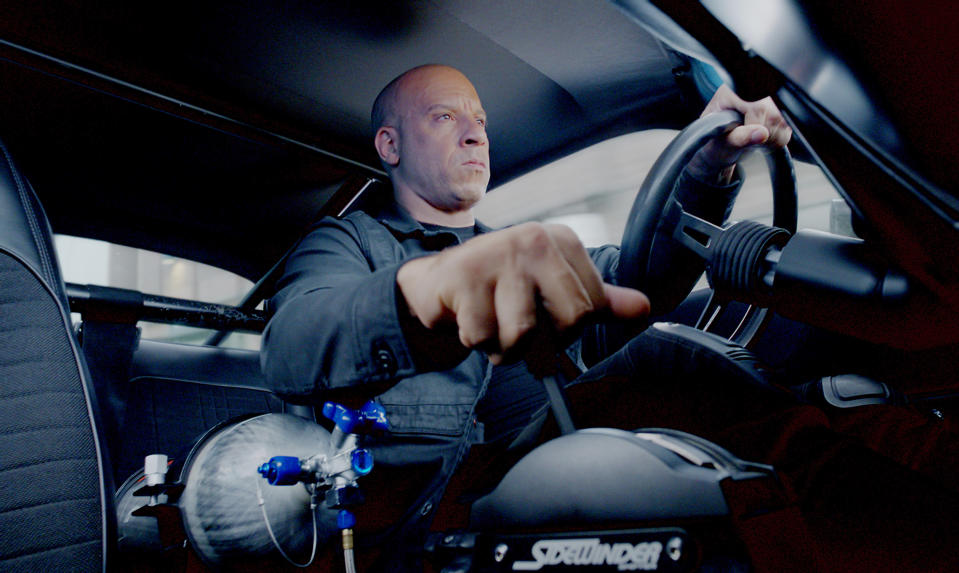Fast & Furious movies cause faster driving claims research

Watching Vin Diesel and his pals hoon around the world in muscle cars is more likely to give viewers a lead foot, according to new research.
Around the release of new Fast & Furious movies, speeds of drivers caught by the police go through the roof.
Though the number of tickets issued seems largely unaffected, the amount of drivers caught going at speeds 40mph over the speed limit doubled.
Researchers from Harvard Medical School looked at data from traffic tickets put online by the Maryland Police Department.
They then compared the speeds recorded on the issued speeding tickets – nearly 200,000 over five years – and found a correlation with the weekends that the Fast & Furious movies were being released.
In a piece published in the New York Times, Dr Anupam Jena wrote: “We found a large increase in the average speed of drivers who received speeding tickets on the weekends after Fast and Furious releases.
“Comparing the three weekends before each movie’s release with the three weekends after, we found that the speeds people were given tickets for increased almost 20 percent, to an average of 19 miles per hour over the speed limit, from 16 miles per hour.
“We also found that rates of extreme speeding increased. For example, the percentage of drivers charged with driving more than 40 miles per hour above the speed limit nearly doubled (though it remained a tiny proportion of the total), to 2 percent of all violations.”
The franchise is massive for its studio Universal, having made more than $5 billion at the box office over the space of eight movies.
The ninth is due out in April, 2020.

“We can see a clear increase in the average speed on the tickets,” Dr Jena told The Times in the UK.
“But there was not an increase in number. It seems to take people already prone to driving fast and make them drive faster.
“There is a lot of discussion about how movies and other media influence behaviour. But it’s hard to study.
“The Fast and the Furious is good. It glorifies a very specific behaviour: fast driving.”
According to Jena, studying data for driving over, say, the data behind violent criminal behaviour after watching a violent movie proved to clearer results.
“Changing someone’s behaviour to make them more violent is hard. It’s not hard to take someone who is already driving, and make them faster,” he said.
“You’re not going to make someone a murderer. But you might make a murderer do something differently.”
However, Dr Jena added that the data hasn’t coloured his view of the movies.
“I really like the Fast and the Furious movies. They’re good. I just watch them from the safety of my home,” he said.
Read more
Uma Thurman alleges Harvey Weinstein assault
Cloverfield 3 just hit Netflix
Han Solo could be the best Star Wars film

 Yahoo Movies
Yahoo Movies 

